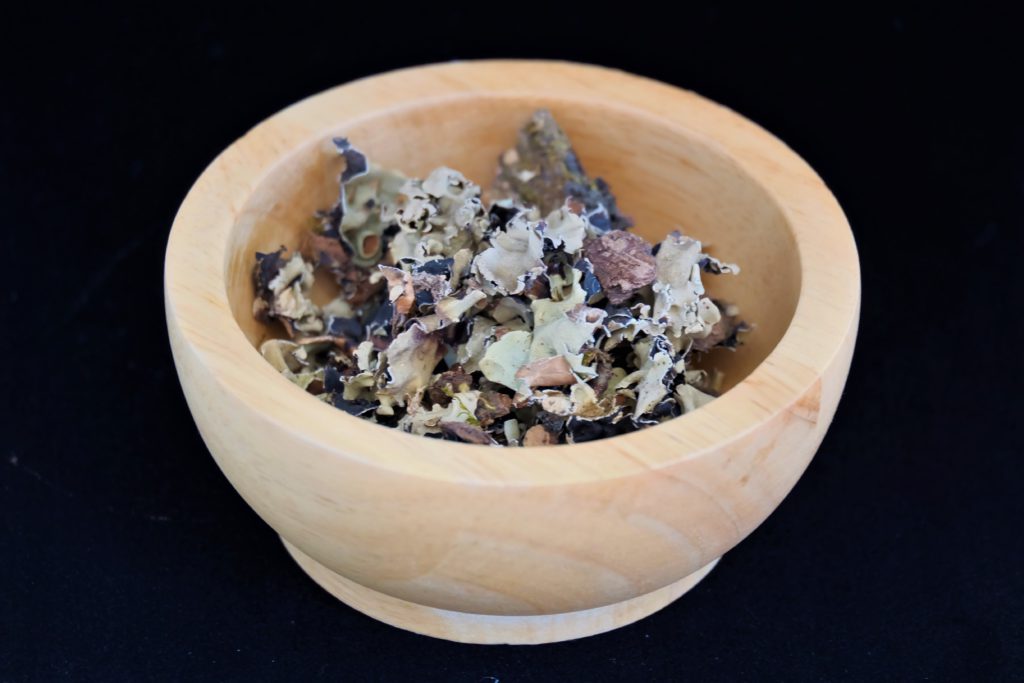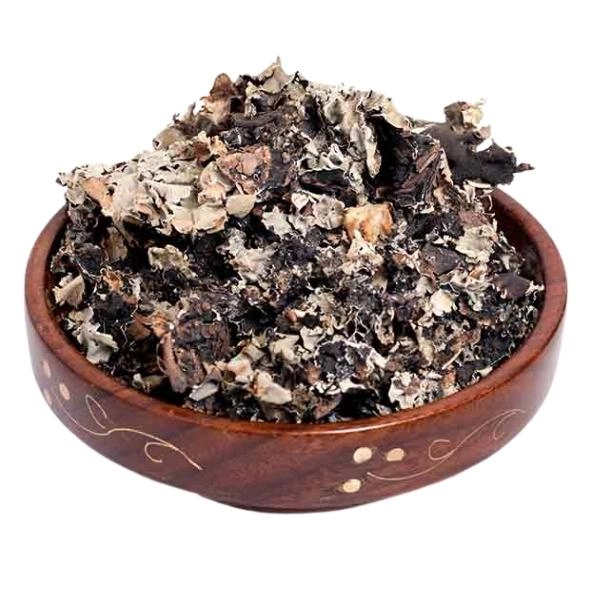INTRODUCTION:
Lichens are symbiotic organisms formed by a partnership between a fungus and an alga or cyanobacterium. They are commonly found on rocks, trees, and soil, especially in dry and harsh environments. Lichens can survive extreme conditions and play a vital role in ecosystems by aiding soil formation and indicating air quality.

English: Lichen
Hindi: शैवाल कवक or लीकेन
Japanese: 地衣類 (ちいるい, Chiirui)
Russian: лишайник (lishaynik)
Arabic: الأشنة (al-’ushnah)
Tamil: பசும்பூஞ்சை
Bengali: শৈবাল or লাইকেন
Urdu: چھڑیلہ
HEALTH BENEFITS:

Antioxidant and Anti-inflammatory:
P. perlata contains antioxidants that protect the body from damage and exhibit anti-inflammatory effects, contributing to overall health and well-being.
Skin Health:
It is used to manage skin-related problems and may support skin health due to its antioxidant and anti-inflammatory properties.
Immune Support:
The lichen is thought to help support general immunity and the immune system.
Digestive and Respiratory Health:
P. perlata is traditionally used to help with digestive issues like dyspepsia and has benefits for respiratory health, including asthma and cough.
Kidney Stone Prevention:
It has shown potential to tone the urinary tract and suppress the formation of kidney stones (antiurolithiatic properties).
Wound Healing:
Its astringent and antibacterial properties make it useful in treating wounds and preventing infection.
Diabetes Management:
P. perlata may help manage blood sugar levels by controlling glucose absorption.
Survival Food
In emergencies, humans have used lichens as food (after proper preparation to remove toxins).
SIDE EFFECTS:

Toxicity
Some lichens contain toxic substances and can be harmful if eaten without proper preparation.
Skin Irritation
Direct contact with certain lichens may cause allergic reactions or skin irritation in sensitive people.
Digestive Issues
If consumed raw or improperly processed, lichens can cause stomach pain, nausea, or vomiting.
Not for Regular Use
Medicinal use of lichen extracts (like usnic acid) can be harmful in large doses, especially to the liver.
HOW TO USE:
Lichen Tea (for colds or sore throat)
Lichen used: Usnea or other edible medicinal lichens
How to make:
Clean and dry the lichen.
Boil 1 teaspoon of dried lichen in 1 cup of water.
Simmer for 10–15 minutes.
Strain and drink warm.
Use: May help with coughs, sore throat, and minor infections.
Lichen Tincture (herbal extract for infections)
How to make:
Fill a glass jar with clean, chopped lichen.
Cover with alcohol (like vodka) completely.
Seal and store for 4–6 weeks, shaking occasionally.
Strain and store in a dark bottle.
Use: A few drops under the tongue or in water (as advised by an herbalist).
Lichen Poultice (for wounds or skin infections)
How to use:

Crush clean lichen into a paste with warm water.
Apply directly to a wound or infected skin area.
Cover with clean cloth.
Use: Natural antiseptic for minor cuts or sores.
Important Safety Notes
- Not all lichens are safe—some are toxic.
- Always identify the species correctly.
- Avoid long-term or high-dose use of usnic acid (can harm the liver).
- Consult a healthcare provider or trained herbalist before using medicinally




